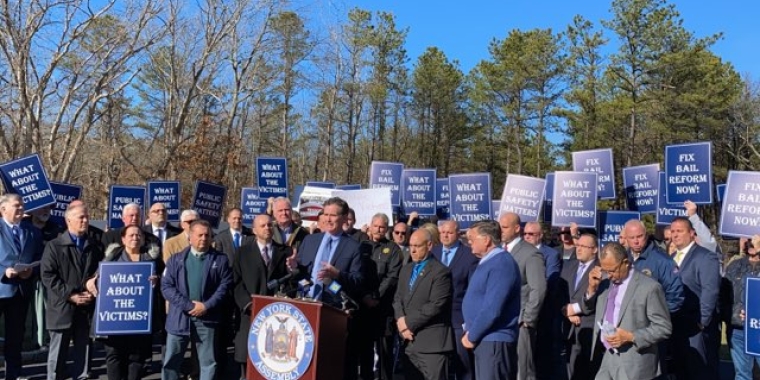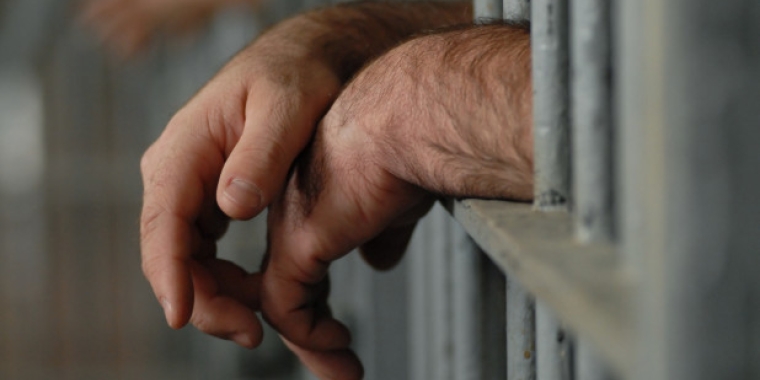
Statements on Dea’s Ban of Synthetic Marijuana From Senator John Flanagan
John J. Flanagan
March 4, 2011
-
ISSUE:
- Controlled Substances
STATEMENTS ON DEA’S BAN OF SYNTHETIC MARIJUANA FROM SENATOR JOHN FLANAGAN
As the Senate sponsor of legislation to ban the chemicals used to create synthetic chemicals in New York State, I am pleased to see that the Drug Enforcement Administration has enacted a one-year ban of these substances and is working to protect our nation’s children from this danger. This is a clear sign that these types of substances should be off the shelves of our state and our nation and I am hopeful that their next step will be to make this ban permanent.
While it is often called ‘fake pot’, its effects are very real. As I have said repeatedly, this ‘legal high’ is not something that should be in our communities especially in light of the problems our region is experiencing with illegal drug use. These substances are dangerous, they are gateways to future and more expanded drug use and they should be banned.
While I applaud the DEA for acting, I will continue to push for a statewide law restricting the sale of synthetic marijuana to make sure that our communities are protected in the event that the federal ban is removed. I will also continue to work for a ban on the herb salvia divinorum, which is a legally sold hallucinogen that should be off our store shelves as well.
Our children are too important to our community and our future to allow these dangerous substances to destroy their lives. The federal government has finally realized the real effects of synthetic marijuana and we need to continue fighting to rid our local stores of all these types of products permanently.
John Flanagan
********************************************
DEA News Release March 1, 2011
Chemicals Used in "Spice" and "K2" Type Products Now Under Federal Control and Regulation
DEA Will Study Whether To Permanently Control Five Substances
MAR 01 - WASHINGTON, D.C. – The United States Drug Enforcement Administration (DEA) today exercised its emergency scheduling authority to control five chemicals (JWH-018, JWH-073, JWH-200, CP-47,497, and cannabicyclohexanol) used to make so-called “fake pot” products. Except as authorized by law, this action makes possessing and selling these chemicals or the products that contain them illegal in the United States. This emergency action was necessary to prevent an imminent threat to public health and safety. The temporary scheduling action will remain in effect for at least one year while the DEA and the United States Department of Health and Human Services (DHHS) further study whether these chemicals should be permanently controlled.
The Final Order was published today in the Federal Register to alert the public to this action. These chemicals will be controlled for at least 12 months, with the possibility of a six month extension. They are designated as Schedule I substances, the most restrictive category under the Controlled Substances Act. Schedule I substances are reserved for those substances with a high potential for abuse, no accepted medical use for treatment in the United States and a lack of accepted safety for use of the drug under medical supervision.
Over the past couple of years, smokeable herbal products marketed as being “legal” and as providing a marijuana-like high, have become increasingly popular, particularly among teens and young adults. These products consist of plant material that has been coated with research chemicals that claim to mimic THC, the active ingredient in marijuana, and are sold at a variety of retail outlets, in head shops, and over the Internet. These chemicals, however, have not been approved by the FDA for human consumption, and there is no oversight of the manufacturing process. Brands such as “Spice,” “K2,” “Blaze,” and “Red X Dawn” are labeled as herbal incense to mask their intended purpose.
Since 2009, DEA has received an increasing number of reports from poison control centers, hospitals and law enforcement regarding these products. At least 16 states have already taken action to control one or more of these chemicals. The Comprehensive Crime Control Act of 1984 amends the Controlled Substances Act (CSA) to allow the DEA Administrator to place a substance temporarily in schedule I when it is necessary to avoid an imminent threat to the public safety. Emergency room physicians report that individuals that use these types of products experience serious side effects which include: convulsions, anxiety attacks, dangerously elevated heart rates, increased blood pressure, vomiting, and disorientation.
“Young people are being harmed when they smoke these dangerous ‘fake pot’ products and wrongly equate the products' ‘legal’ retail availability with being ‘safe’,” said DEA Administrator Michele M. Leonhart. “Parents and community leaders look to us to help them protect their kids, and we have not let them down. Today’s action, while temporary, will reduce the number of young people being seen in hospital emergency rooms after ingesting these synthetic chemicals to get high.”
Share this Article or Press Release
Newsroom
Go to NewsroomNorthport Middle School Information
January 29, 2020

Suffolk Rallies To Restore Sanity To Bail System
January 24, 2020


